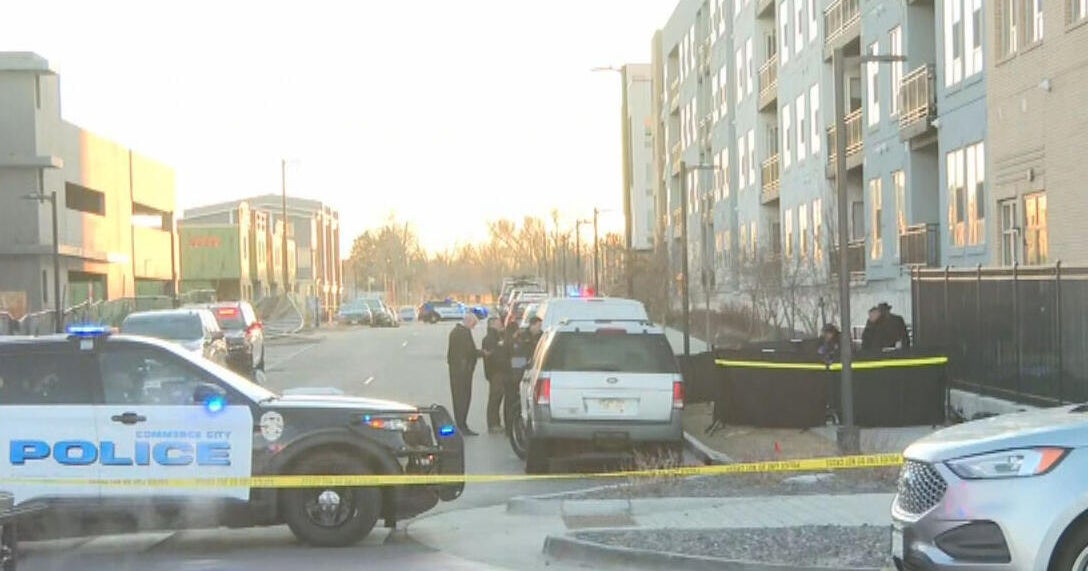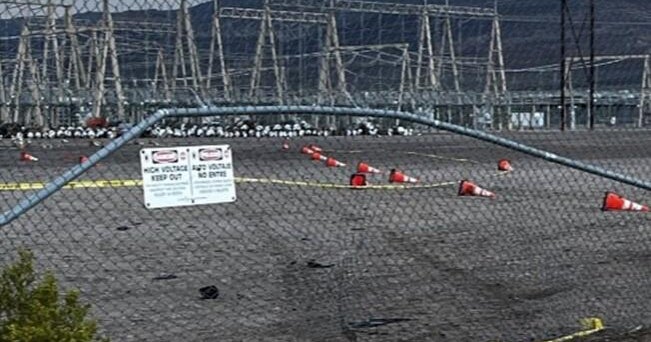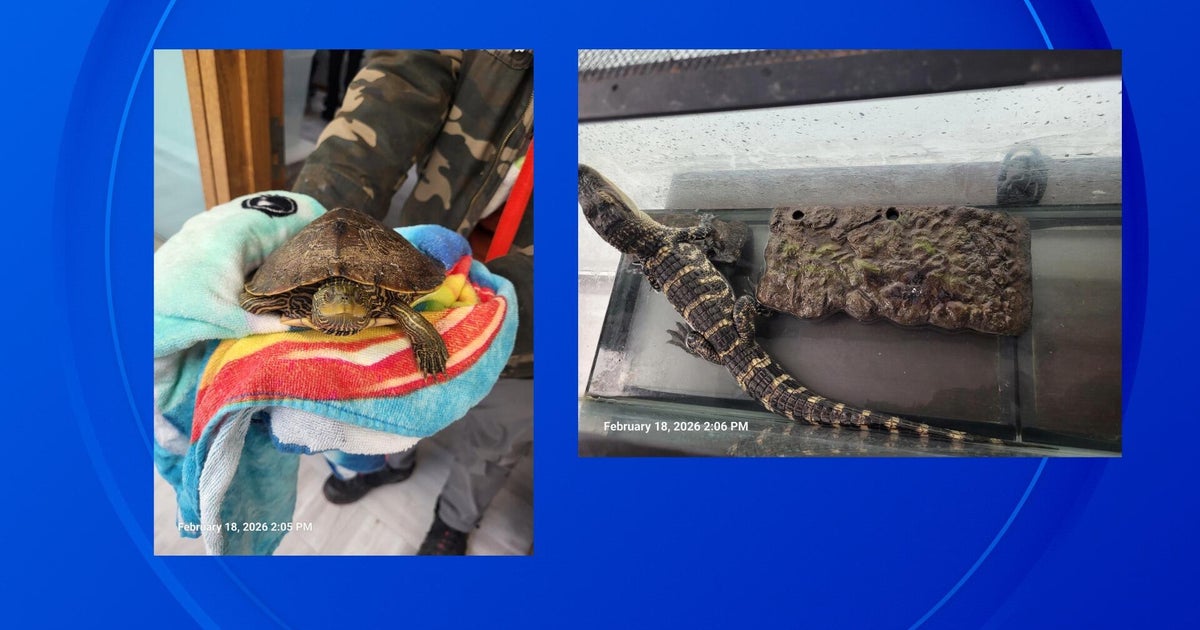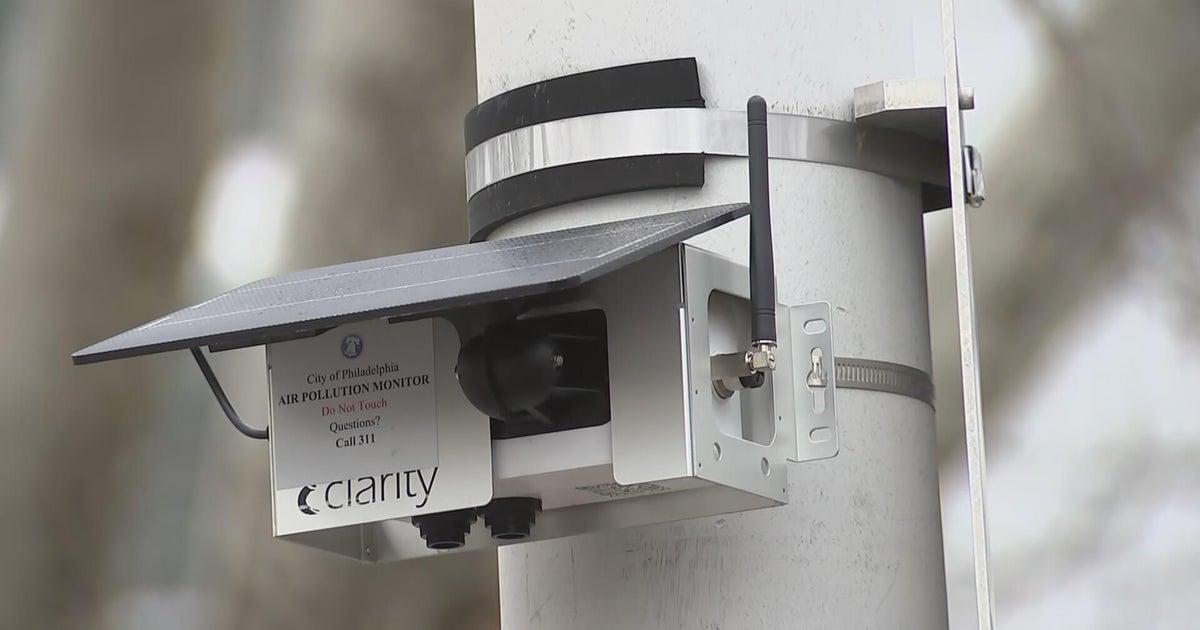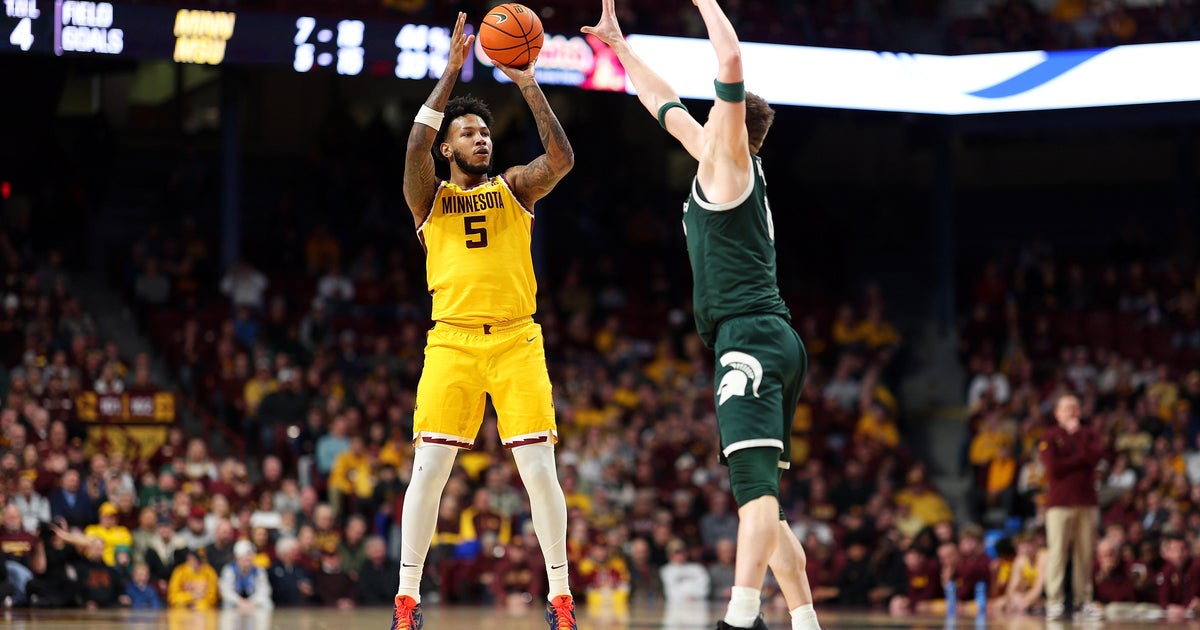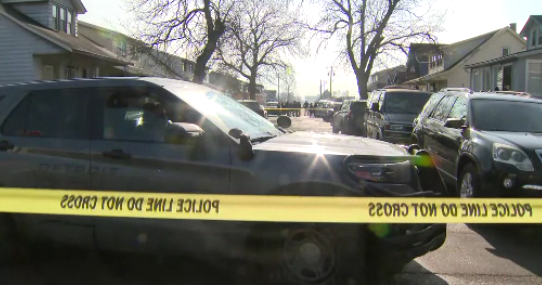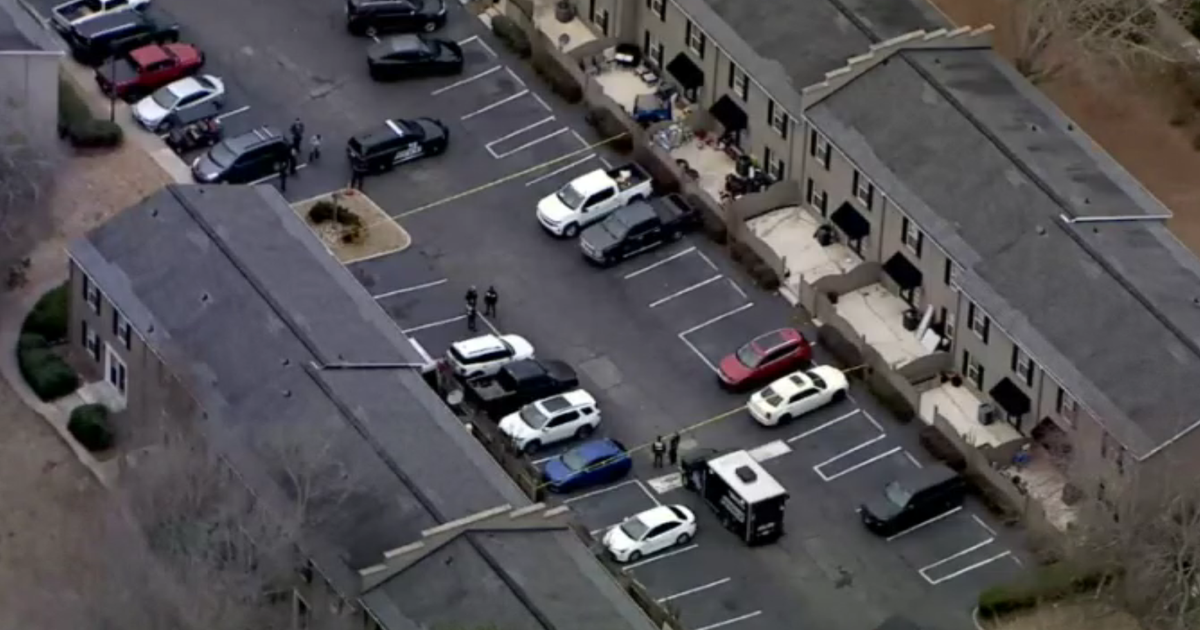I-Team Exclusive: Miami Police Launch Illegal Gambling Machine Raid
MIAMI (CBS4) -- Another Miami Police raid of illegal gambling machines is stirring up the on-going political battle between the police department and the Mayor of Miami and now also extending into the City of Hialeah.
Tuesday's raid is just the latest in a series of crackdowns and they show no signs of letting up anytime soon.
In their first location, Miami police discovered a hidden room packed with illegal gambling machines at a check cashing store just off Biscayne Boulevard.
Miami Police Major Alfredo Alvarez led Tuesday morning's raid.
"They know it's illegal, completely illegal, it's a game they're playing," Maj. Alvarez told CBS4 I-Team investigator Jim DeFede.
Miami police raided several locations as part of their ongoing crackdown on the so-called maquinitas, the video slot machines cops claim promote illegal gambling.
The campaign led by Miami Police Chief Miguel Exposito has placed him at odds with Miami Mayor Tomas Regalado. It has also pitted his department against the City of Hialeah, which Exposito claims has created a safe haven for the illegal gambling industry. But Tuesday morning in Miami, the emphasis was on finding and rounding up the machines.
"It is obvious that there is money to be made and I guess that's why some of these store owners who have been arrested or have dealt with us prior continue to take that chance," said Miami police Officer Cid Fernandez.
Miami police found a total of seven machines at two locations. They seized the machines and issued misdemeanor citations to the store managers.
When asked about the political battle taking place over the maquinitas, store manager Lazaro Martinez said, "I'm nobody to have an opinion on that. Whatever happens is going to happen. It's an on-going battle between the city and the amusement people." He also stated that he believes people play these machines for the same reasons they go to a casino. "They like the entertainment and the amusement part of it." When asked if it was because they also can win money, Martinez replied, "I guess, if that's what it is."
The political battle between Mayor Regalado and Chief Exposito began last fall when police raided a dozen Miami locations and seized nearly 400 video machines less than two weeks after the Miami City Commission passed a plan, crafted by Regalado, to sanction the maqinitas by taxing vendors $500 for each machine they bring into the city. Exposito had argued the ordinance was ridiculous and the city commission was attempting to ignore state law which prohibits these types of machines.
"A city cannot pass an ordinance that supersedes a state law," Exposito told DeFede.
Regalado went ahead and pushed the ordinance anyway – hoping to generate at least $750,000 in revenue for the financially struggling city.
Exposito had warned Regalado to steer clear of the machines. He said they had been tied in the past to organized crime and even more troubling, the machines were designed to exploit the poorest segments of the community. These video slot machines are most often found in bars and convenience stores catering to low-wage immigrant communities.
The Background
The raid took place October 14th and began at 7:00 a.m. Once it was underway, Major Alvarez said he called Regalado on the mayor's cell phone to let him know what was taking place.
"He was angry," Alvarez recalled. "He told me to stop [the raid]."
Alvarez said he refused.
"I'm a police officer," he explained, "and I have to enforce the laws of the state."
Regalado denies ordering Alvarez to stop. Under the city charter, the mayor is not allowed to give orders to any department heads. Only the city manager can do that.
Regalado does admit to calling then City Manager Carlos Migoya and asking him to stop the raids. Migoya refused.
"I was asking him to see if they can talk to the police so they can postpone the operation until the after the Miami Parking Authority election," Regalado said, although it was unclear why an obscure city election two weeks later would have anything to do with a police operation against illegal gambling machines.
Since the raid, and Regalado's alleged attempts to stop it, the relationship between the chief and the mayor have worsened. The mayor argues Exposito is creating the controversy to take attention away from the recent spate of police shootings in the black community and the calls for the chief to be fired.
The chief's supporters counter that it was only after the chief began speaking out against the maqinitas and the mayor's campaign contributors that the mayor began to lobby for the chief's firing.
Regardless, the controversy now threatens to move beyond the city of Miami. In an interview with Jim DeFede, Regalado took responsibility for Miami's plan to tax the video slot machines. But he also admitted the idea came to him after talking to folks in Hialeah, who had passed a similar measure in 2008.
And who did he talk to in Hialeah?
"I spoke to Mayor Robaina," Regalado explained.
Hialeah Mayor Julio Robaina is now the frontrunner in the race to replace Carlos Alvarez as mayor of Miami Dade County.
When CBS4 News approached Robaina after a recent Hialeah City Commission meeting, he seemed happy but his mood quickly changed when asked about the maqinitas? CBS4 News wanted to talk to him about the 2008 ordinance he championed that critics say attempted to legitimize more than 1,600 illegal slot machines.
"Submit your questions," he said. "You know that. Submit your questions."
Robaina raced onto an elevator. But when a reporter and photographer got on with him he finally relented and agreed to answer a few questions.
"We can talk about them sure," he said of the gambling machines. "The city council passed an ordinance that regulates and makes sure that the machines are not being used in an illegal manner."
Well how does the ordinance make sure they are not used in an illegal manner? How is that even possible?
"They cannot be used for anything that is not an entertainment machine," he replied.
Unfortunately, that's not the experience in Miami. Police argue the sole purpose of these machines is to promote illegal gambling.
"Hialeah is doing it wrong," said Maj. Alvarez. "Hialeah is actually allowing these machines by not allowing law enforcement to pick them up."
Alvarez said during one recent raid in Miami, his men followed a truck filled with illegal machines from Miami to a warehouse in Hialeah. Alvarez said that warehouse is one of the bases where the machines were being made.
What does that tell you about the nature of the operation you are dealing with?
"It is all being hidden," Alvarez maintained. "And they have found a haven to be at where nobody messes with them. None of those warehouses could exist here in Miami."
And that haven is Hialeah?
"That's what I've noticed, yes," he said.
Hialeah Police Chief Mark Overton bristled at the suggestion he is not doing his job properly. He said he doesn't routinely pick up the machines because it's too hard to tell if they are illegal.
"If it's a game of skill or has some element of skill in it then it isn't illegal," Overton explained. "And that basically is what the statute says."
But where is the skill to hitting a button marked "credits" and then hitting a button marked "play"?
"I don't know, that's part of the issue," Overton said.
Alvarez says it is common sense.
Alvarez says it defies common sense to believe that someone would play this style of machine – which is nothing more than a video style slot machine – in a bar or corner market if the players weren't getting paid.
"You have individuals who profit from these illegal machines," Alvarez said. "They profit a lot of money and all of that money is tax free. It's all cash. There are no records kept."
How much cash? Miami Police officials estimate the average maqinita takes in $1,000 a week. That would mean the 1,600 machines in Hialeah alone are generating $1.6 million a week in cash -- or more than $83 million a year.
Despite the recent concerns raised by Miami police, Robaina continues to defend having the maquinitas in Hialeah.
CBS's DeFede asked Robaina: "You've seen these machines. You think they are actually being used purely for entertainment? You don't think these machines are part of some effort to foster gambling here in your city?"
"No, absolutely not," Robaina said. "If they are used illegally they will be taken away and those businesses will be shut down. That is what the ordinance says and that is what the city of Hialeah does.
So how many Hialeah businesses have been shut down for illegal gambling? Two. Just two businesses have been closed since the ordinance went into effect in 2008.
